When the Dutch wanted to expand their territories, they turned to the North Sea to create more arable land for Dutch farmers. Likewise, Singapore has reclaimed land to expand their territories. Over 95% of Egypt’s population live along the Nile River and its fertile delta, and the population (over 110 million people) continues to grow and is seeking new options. While this isn’t expanding into the sea, it is a type of land reclamation project as they environment is modified to make the desert bloom. Both of these embedded videos are helpful introductions to the political, economic, demographic, and environmental aspects of these projects in the Middle East.
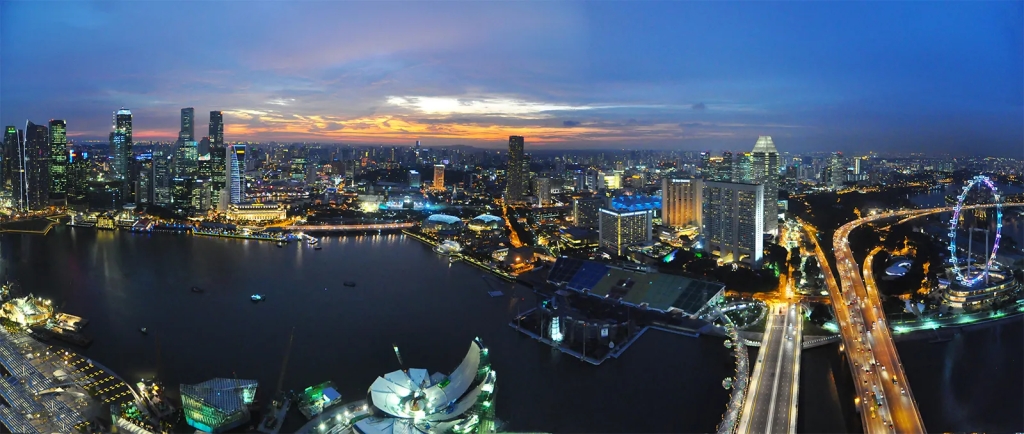
“Chinese individuals now see Singapore as the vessel that can navigate them through a series of expected storms. At the same time, they add, it is becoming an increasingly vital place for outposts of Wall Street and the global financial industry to interact with them. For many years, Singapore has liked to sell itself as the Switzerland of Asia. The new cold war, says one former top official, is finally turning that pitch into a reality. The big question, though, is how far Singapore will tolerate being Switzerland with Chinese characteristics.” SOURCE: Financial Times
Singapore is small, but it is strategically located and tightly linked to all the important players in the region. Singapore (about 75% ethnically Chinese) has played a role in Chinese migration and wealth and more Chinese companies are choosing Singapore as a base of operations. With many companies and countries leery about the Communist party, having a company operating out of Singapore is a safe bet for investors, so investors and Western partners are also choosing Singapore as a politically neutral safe haven for investors. This article nicely outlined the economic and geographic appeal of Singapore that has made it an economic powerhouse.
TAGS: Singapore, economic, SouthEast Asia.
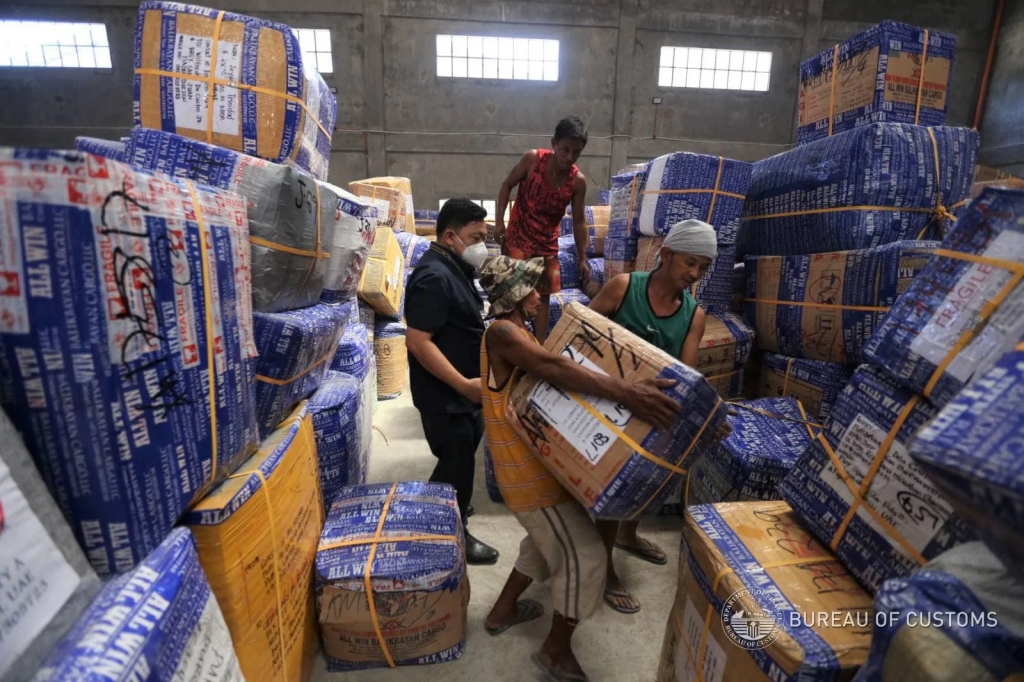
“A Balikbayan box is a huge cardboard box (often weighing over 100 pounds) that Filipinos living all over the world send to family members who are still living in the Philippines. The word Balikbayan literally means homecoming in Tagalog. 400,000 thousand of these Balikbayan boxes arrive in the Philippines from around the world per month. But the holiday season is the busiest, with mothers sending to sons, brothers to sisters, and hundreds of thousands waiting in the Philippines for their box.” SOURCE: 99 PI Podcast
The sending of remittances is an important inter-regional economic flow concept and there is no better example than the Philippines. This 99 Percent Invisible podcast is an excellent portrayal of the cultural and economic impacts of the Balikbayan boxes, with a full transcript, good video clips, and nice images.
With unemployment high after WWII, the Philippines made an active economic strategy of remittances by encouraging citizens to work abroad and to send money back home. Filipinos went to the United States, the Middle East, Hong Kong, Singapore and throughout the Pacific. But the government didn’t enter trade agreements to grant them full citizenship in the new country as whole families, but often as individual temporary workers which meant that they always kept one foot (and their heart) in the Philippines.
Balikbayan means “homecoming” or “return of our people.” The people that left, the Balikbayan, are treated with an elevated status upon returning and often feel a sense of responsibility to those that they left behind. The Balikbayan boxes are care packages that they send back home to loved ones in the Philippines, but so much more so. Huge boxes loaded with commercial goods like chocolate, electronics, toothpaste, and yes, SPAM (SPAM is especially loved in the Filipino community for some fascinating cultural and historical reason). Christmas is celebrated for several months in the Philippines and the busiest time for Balikbayan boxes to be sent from all over the world.
TAGS: Philippines, economic, migration.
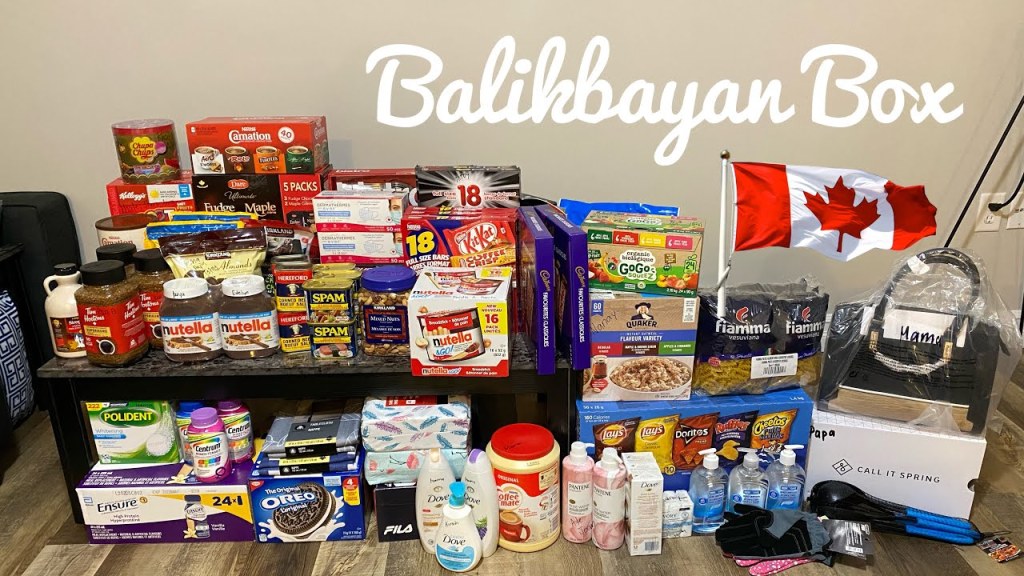
Norway’s economic success is unrivalled, both in Scandinavia as well as compared to other countries with oil resources. In the early 20th century, Norway was relatively poor; they had limited agricultural lands and relied heavily on ocean resources and their merchant marine fleet to fuel their economy. The hydroelectric resources were a part of their growth that put them back on par with their European neighbors.
The 1969 discovering of oil in the North Sea was the obvious answer to their economic growth. The overlooked aspect is the low levels of corruption, sound public policy for future economic success, and democratic institutions that were already deeply entrenched in Norway. Many oil-rich countries have squandered the wealth being incentivized for short-term spending at best, with politicians siphoning off the money at worse. Timing can matter tremendously; Norway was developed first, THEN discovered oil in 1969. That means that the already solid institutions were the ones to shepherd in their enormous success.
TAGS: Norway.
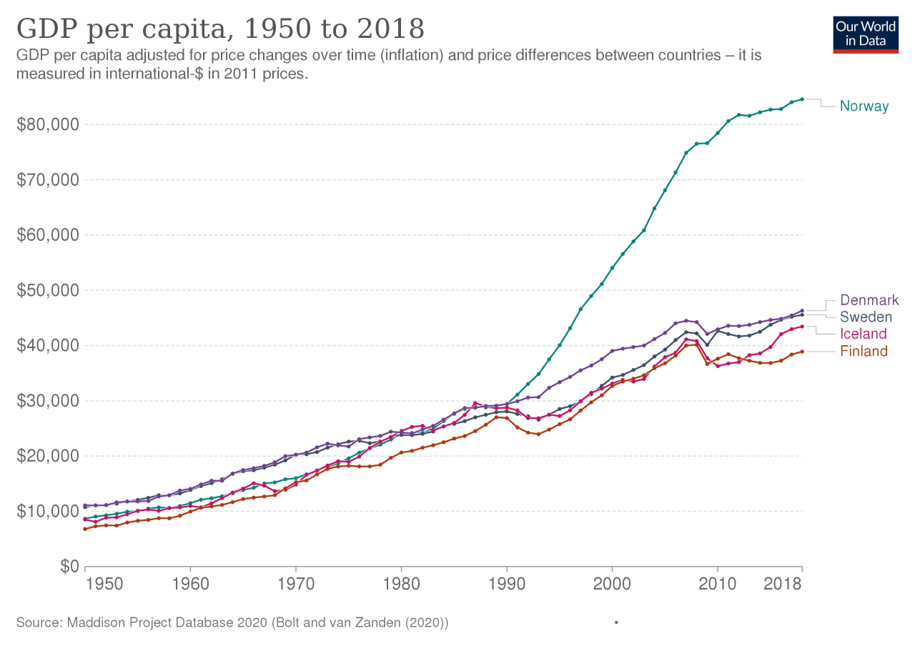

The economic restructuring of the United States is reconfiguring cities, political alignments, rural patterns and so many more systems. I would like to highlight how retail has changed in the last few decades in the United States.
In the early 2000s, I was visiting a small, declining Pennsylvania town name Bradford. One of the residents was bemoaning the economic and demographic decline of this Appalachian city of about 10,000 residents, noting how the most ambitious and brightest high schoolers from the area have moved out, leading to brain drain. Many locally owned businesses on Main Street had been struggling, and the resident said, “Thank goodness for Walmart and the Dollar stores…those are the only things that are keeping business around this town.” Out of politeness to my host, I didn’t mention that I saw the opposite happening: Wal-Mart and the Dollar stores, were capitalizing on economies of scale to muscle out locally businesses, creating an economic pattern that would have negative long-term consequences on this community and others like it.
Bradford, PA is not unique, but emblematic of many places in the United States. Over 10,000 new dollar stores have sprouted up in the United States since 2000, especially in small towns and rural areas. Some places are starting to push pack, since the communities are not seeing this as a positive development for the community.
Online shopping is another persistent pattern of the last few decades that is reconfiguring our cities, and the COVID-19 pandemic has intensified these issues that were already under way. Department stores have been anchors of shopping malls, which themselves are struggling after overexpanding. Many department stores have gone under, and those remaining brick-and-mortar department stores are struggling against the online shopping paradigm shift. Business with continue, but it will not be business as usual.
QUESTIONS TO PONDER: Why can cheap retail stores have a negative impact on a local community? Can you see this anywhere in your community? How does online shopping positively and negatively impact your community?
SOURCES/Further Reading materials:
CITYLAB: The Dollar Store Backlash has begun
VOX: Death of the Department Store and the Middle Class (from November)
NY TIMES-Death of the Department Store (from April)
CNBC-Department stores could be in their last stages (from September)
Do you need a case study on how to explore big data like the Observatory of Economic Complexity with students to uncover geographic patterns? This site let’s you ask interrelated questions and enter a rabbit hole of economic, geographic data. This is one of the best online tools for student projects in geography, so let me show you how the data visualizations can be used to make concrete observations that will unearth spatial relationships.
While I was wondering about the world largest coffee exporters, I looked at the Observatory of Economic Complexity’s data visualization tools. I was expecting to find mostly tropical countries where coffee is grown. I was baffled to find that Germany was listed as a major coffee exporter, along with many other Western European countries.
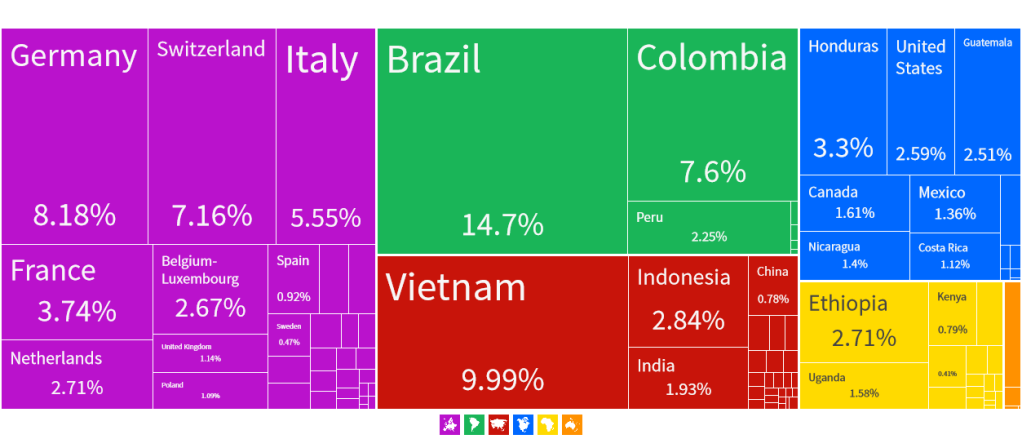
This at first seemed like a misprint but many European countries like Germany import import green coffee beans from a variety of tropical countries, so they are a major producer of coffee without growing a single bean. In fact, the world’s largest single port for shipping coffee is Hamburg.

The highlands of East Africa were the original hearth of coffee beans and today, countries like Ethiopia and Uganda export green coffee beans overwhelmingly to European countries which in turn, roasts them and then exports them internationally.

African coffee growers face some steep difficulties when it comes to exporting roasted coffee. This “value added” step would certainly increase the trading power of their agricultural commodities on the international trading market, but many European coffee labels already dominate that step in the commodity chain and have the made deep in-roads with consumers.

Exporting the finalized roasted coffee is but a very small part the overall German economy (the largest of the light green boxes-0.26% of total exports). For Ethiopia however, coffee exports is a major component of all their international trade (34.6%). Ethiopia produces something of high value, but is not positioned to extract a lot of profit from that commodity.

This is the crux of what makes decisions about free trade/fair trade difficult for individual consumers that are hoping to “vote with their pocketbook” to put their dollars in economic practices that they approve of. Commodity chains of so many products have become increasingly complex and these goods are more connected with far more places and workers than most would imagine. Simply reading the label does NOT tell the full story of most products and the economic geographies that produced them.
This is just one story about the global economy that can be unearthed by exploring the Observatory of Economic Complexity. Were you wondering about Ethiopia’s cut flowers or Uganda’s gold? There is an entire network of economic relations that waiting to be uncovered if you are curious and willing to explore the data. This is why it is one of the best online tools for student projects in geography.
GeoEd Tags: agriculture, economic, Germany.
“Data from IMF, World Economic Outlook, April 2019“
There are many stories in this video in the nearly 40 years of economic history of South America since 1990.The two most important stories portrayed (or at least the most dramatic) in the animated chart are decline of Venezuela’s economy and the rise of Chile’s. This video can act as a primer to get students to consider the regional context of economic growth as well as the differing historical, political, and geographic context that leads to distinct results in any given country.
GeoEd Tags: South America, Latin America, economic, historical, political, video.

“The ambitious Canal Istanbul project could displace thousands of people, imperil the city’s tenuous water supply, and impact ocean life, critics say.”
Source: news.nationalgeographic.com
Istanbul’s location on the Bosporus has been vital to the Byzantine and Ottoman Empire as well as the modern state of Turkey. This is one of those crucial chokepoints of global commerce like the Straits of Malacca, and the demands on both of these natural waterways will soon exceed their capacity. Thailand is working on the Thai canal to relieve the pressures on the Straits of Malacca (and enrich themselves in the process); Nicaragua is also seeking to create an alternative to the Panama Canal which is in the process of expanding their locks to accommodate the massive container ships.
Istanbul is likewise looking to find other ways the keep their locational advantage as the gateway to the Black Sea region and beyond. Projects on this grand of a scale have tremendous real estate, trading, transportation and even tourism impacts. They can also bring negative impacts to the local water supply, wildlife, other environmental concerns. The bigger the project, the bigger the environmental risks and the greater the economic rewards.
GeoEd Tags: transportation, globalization, industry, economic, environment, political ecology, Turkey.
Scoop.it Tags: transportation, globalization, industry, economic, environment, political ecology, Turkey.
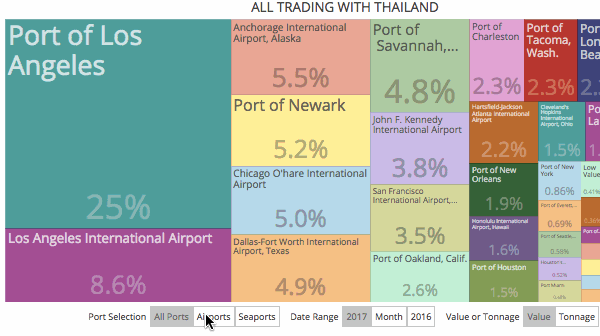
“We offer a variety of resources on U.S. Export/Import Trade with the World with millions of free datasets.” Source: U.S. Trade Numbers
This data visualization tool is very reminiscent of the Atlas of Economic Complexity. While the Atlas of Economic Complexity is better for exploring global trade patterns, this site adds a local impact to the global economy. Users can explore the major port of entries and see what goods are entering or leaving the United States from particular cities as nodes in global transportation networks. The permeability of borders are an economic necessity to take advantage of the economies of scale.
GeoEd TAGS: statistics, transportation, globalization, industry, borders, economic.
Scoop.it Tags: statistics, transportation, globalization, industry, economic, borders, mapping.


